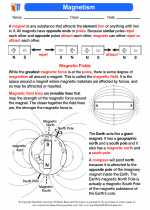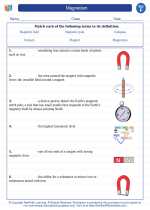Mineralization Process
Mineralization can occur through several processes:
- Hydrothermal processes: Mineral-rich fluids from deep within the Earth can flow through fractures in rocks and deposit minerals as they cool.
- Biological processes: Organisms such as corals, mollusks, and algae can extract minerals from the water and use them to build their skeletons or shells.
- Replacement: Existing minerals in a rock can be replaced by new minerals through chemical reactions, resulting in the formation of different minerals.
Importance of Mineralization
Mineralization is important for several reasons:
- Formation of ores: Many valuable minerals, such as gold, silver, and copper, are formed through mineralization processes, leading to the formation of mineral deposits that can be economically extracted.
- Geological processes: Mineralization plays a key role in the formation of various types of rocks and contributes to the overall Earth's geological processes.
- Environmental impact: Understanding mineralization processes is crucial for assessing the environmental impact of mining activities and for studying natural processes that affect the Earth's crust.
Study Guide
To understand mineralization, it is important to study the following concepts:
- Types of mineralization processes and their geological significance.
- Examples of economically important mineral deposits formed through mineralization.
- The role of mineralization in the formation of different types of rocks.
- Environmental implications of mineralization and mining activities.
- Case studies of specific mineralization processes and their impact on the Earth's crust.
By grasping these concepts, you can develop a comprehensive understanding of mineralization and its significance in geology and environmental science.
[Mineralization] Related Worksheets and Study Guides:
.◂Science Worksheets and Study Guides Sixth Grade. Magnetism
Study Guide Magnetism
Magnetism  Activity Lesson
Activity Lesson Magnetism
Magnetism  Worksheet/Answer key
Worksheet/Answer key Magnetism
Magnetism  Worksheet/Answer key
Worksheet/Answer key Magnetism
Magnetism  Worksheet/Answer key
Worksheet/Answer key Magnetism
Magnetism  Worksheet/Answer key
Worksheet/Answer key Magnetism
Magnetism  Vocabulary/Answer key
Vocabulary/Answer key Magnetism
Magnetism 

 Activity Lesson
Activity Lesson
 Worksheet/Answer key
Worksheet/Answer key
 Worksheet/Answer key
Worksheet/Answer key
 Worksheet/Answer key
Worksheet/Answer key
 Worksheet/Answer key
Worksheet/Answer key
 Vocabulary/Answer key
Vocabulary/Answer key

The resources above cover the following skills:
EARTH AND SPACE SCIENCE
Earth’s Systems
Develop and use models of Earth’s interior composition to illustrate the resulting magnetic field (e.g., magnetic poles) and to explain its measureable effects (e.g., protection from cosmic radiation).